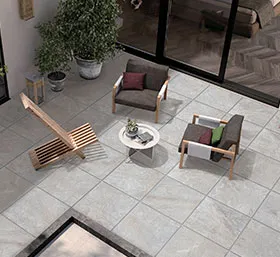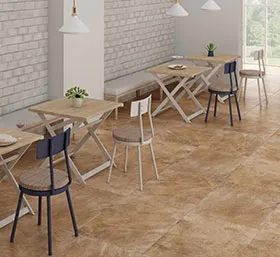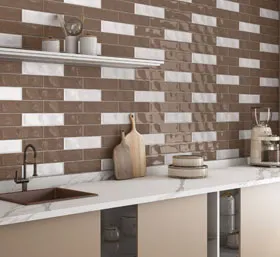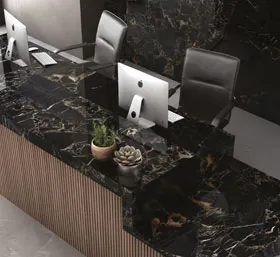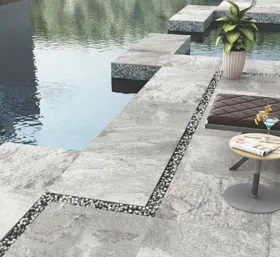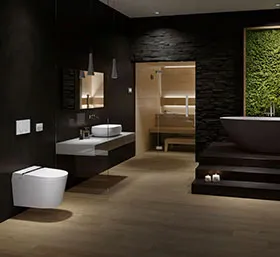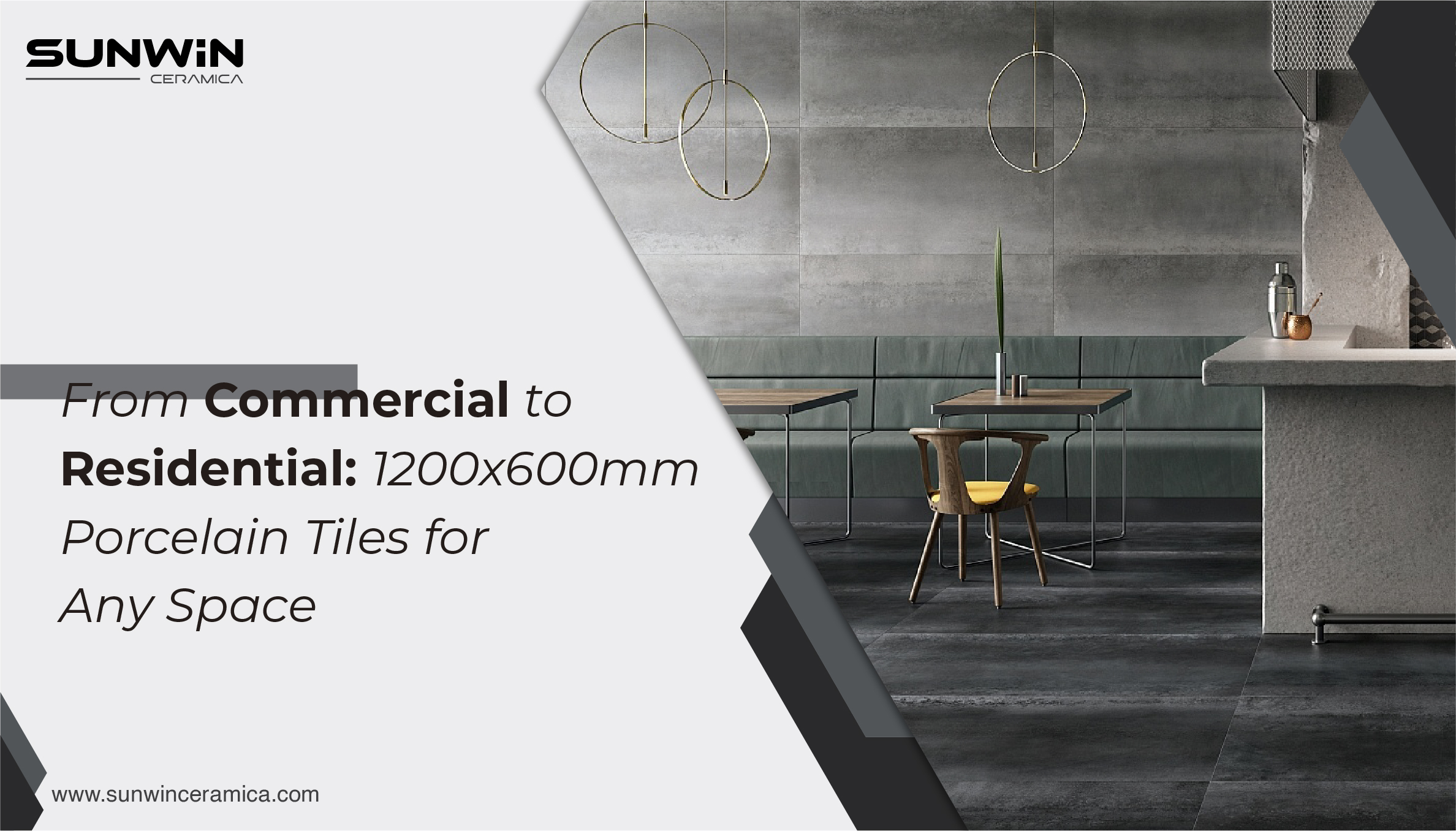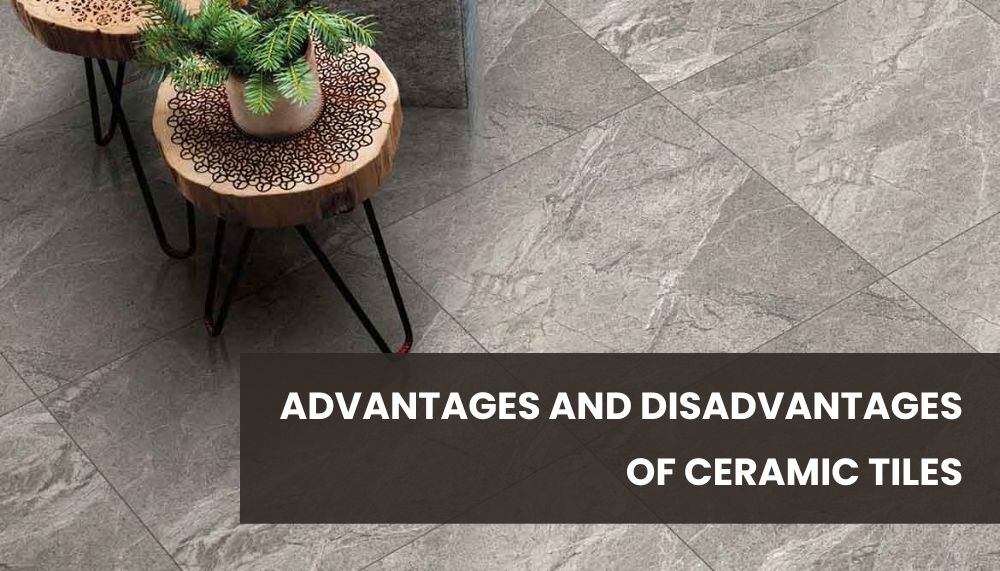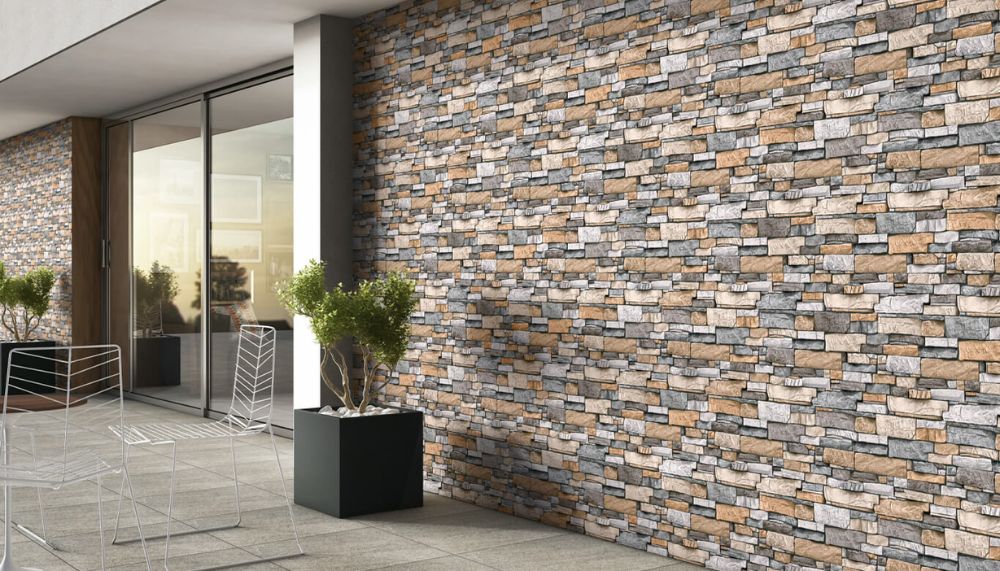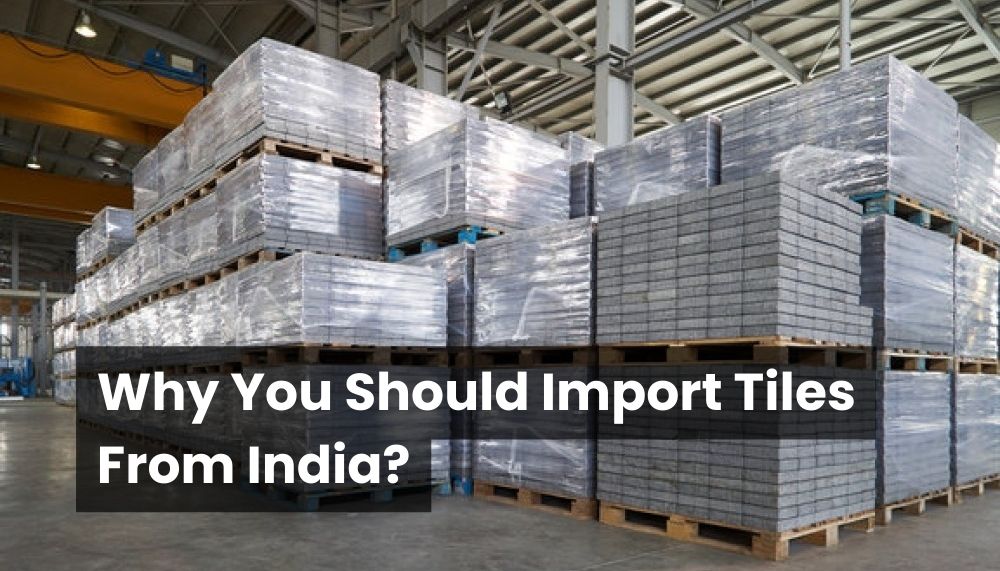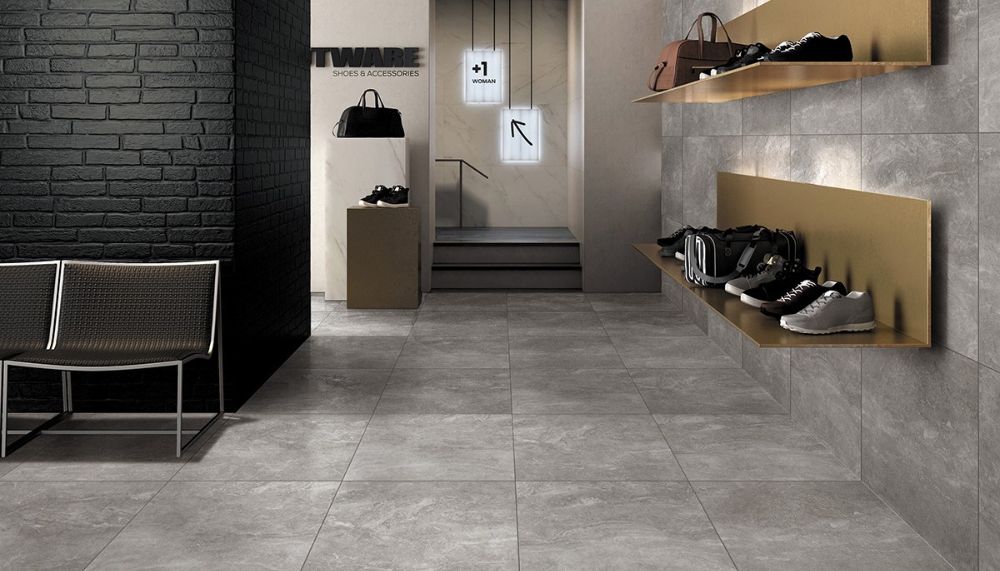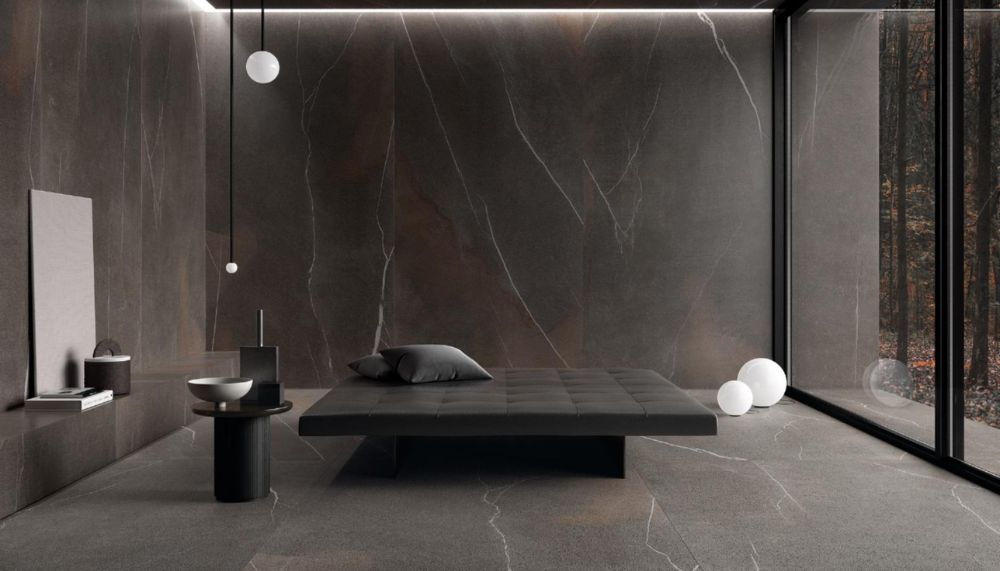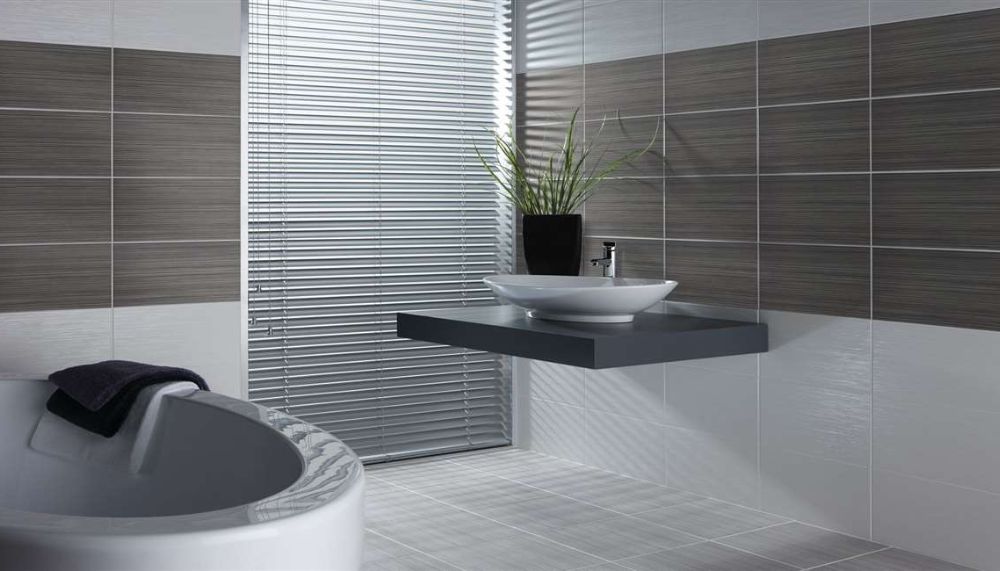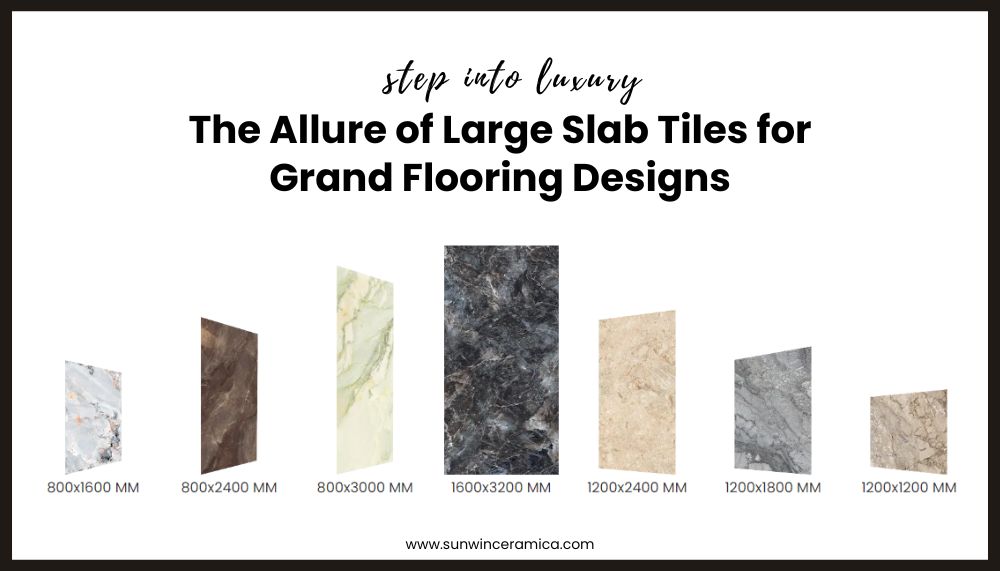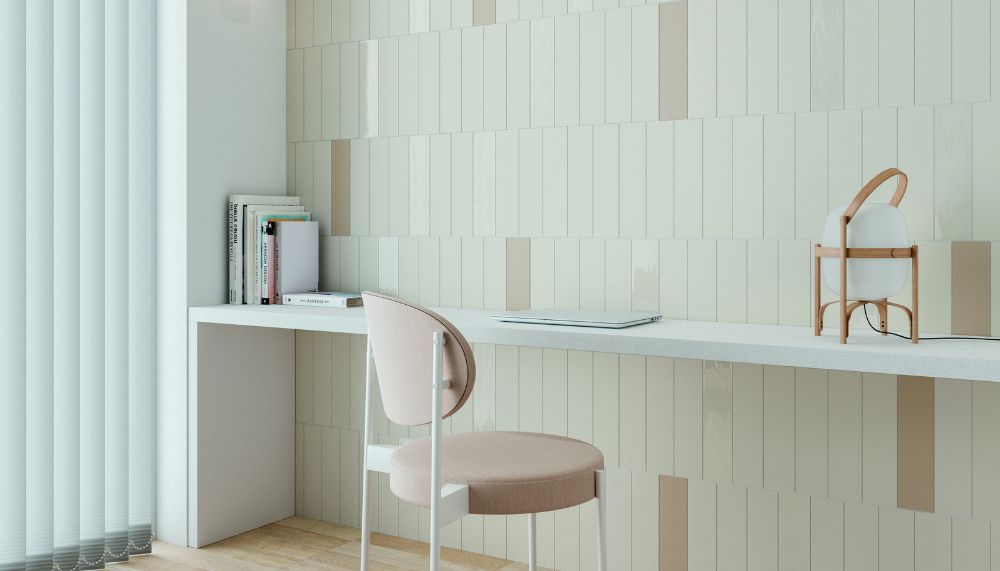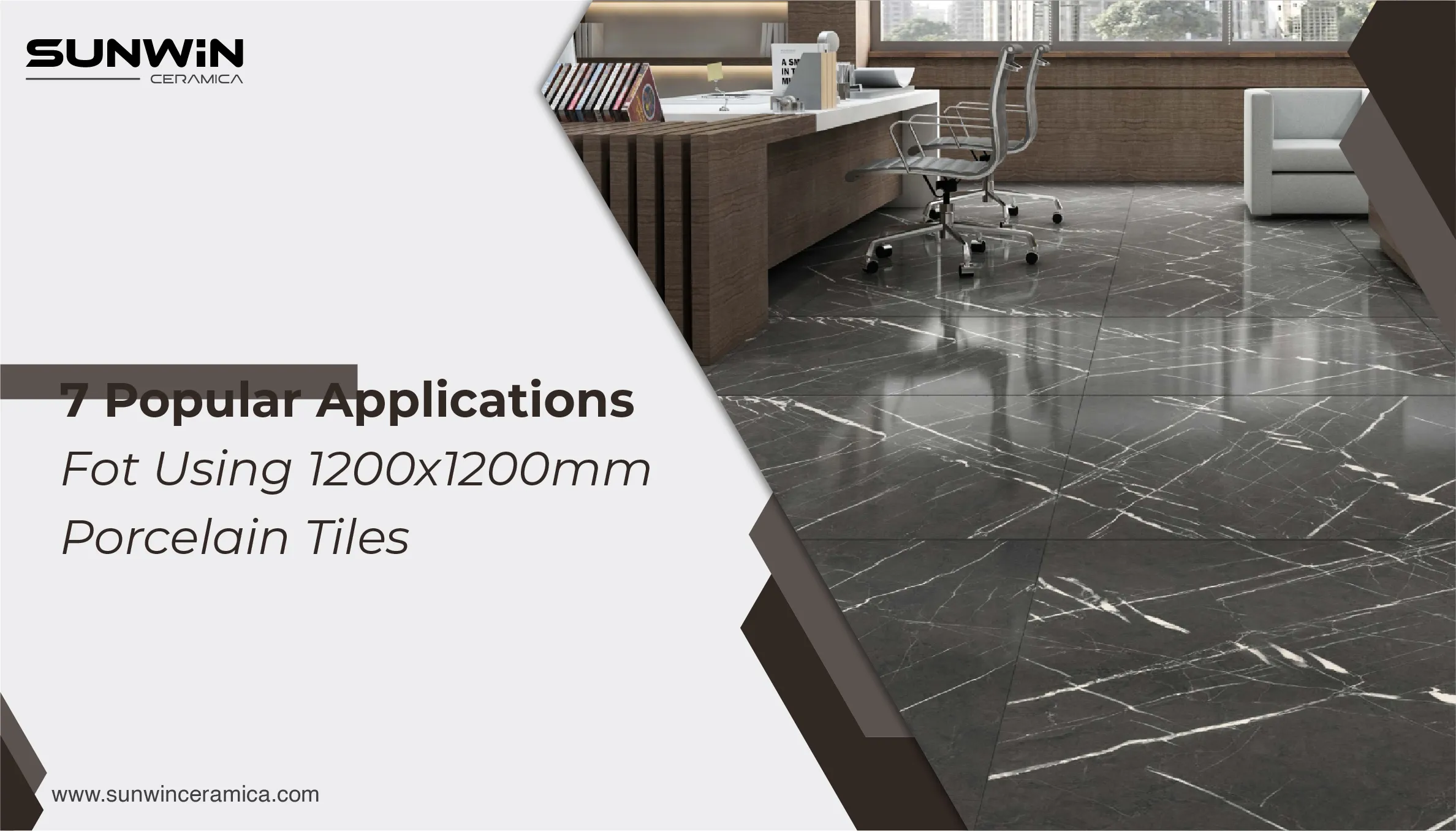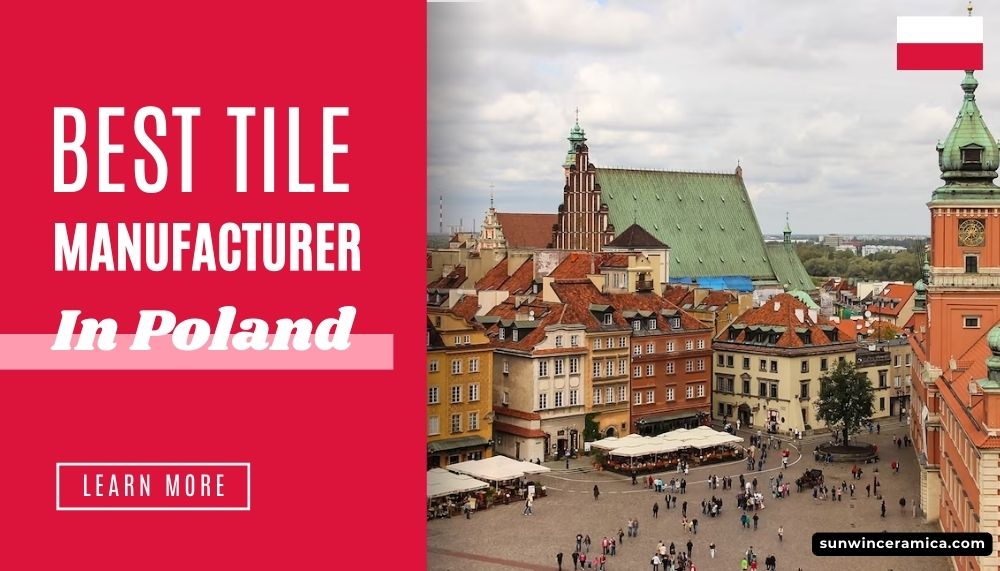
Are you looking to upgrade your space with the finest tiles in Poland? Selecting the best tile manufacturer and supplier is crucial to realizing your vision, whether you're remodeling your house or creating a brand-new industrial space.
Poland is home to some of the best in the tile business, offering a remarkable variety of finishes, materials, and designs. There is a tile to suit every taste and budget, ranging from shiny porcelain to adorable pottery. Are you eager to learn the backstory of Poland's leading tile manufacturers and what sets them apart? Let's begin with the history.
History of Tiles in Poland
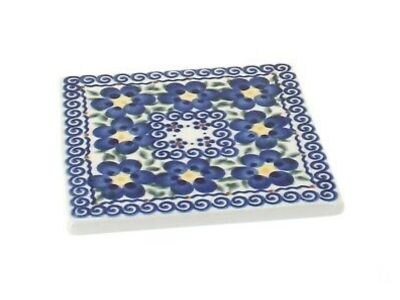
Polish tile, also known as ceramic tiles in Poland, shows a rich history of skill and craftsmanship, combining practical qualities with ornate beauty. The origins of Polish tile-making may be traced back to the Middle Ages when Gothic and Renaissance designs served as inspiration.
By the fifteenth century, wealthy merchants and members of the aristocracy had adopted tiled stoves, or pieces, as both decorative accents and useful sources of heat for their dwellings. These stoves included colorful, hand-painted tiles in shades of ochre and blue that frequently showed geometric patterns, mythical motifs, or floral patterns that demonstrated expert craftsmanship.
The 18th and 19th centuries brought new effects, consisting of Baroque and Neoclassical designs, which were characterized using elaborate and ornate motifs. Polish tiles were celebrated during this time for their brilliant hues, polished surfaces, and carefully distinct imagery. Manufacturers experimented with glazing techniques, including a layer of brilliance to these ornamental portions, making them a favorite part of Polish structure and interior decor.
Polish tiles gained a more innovative yet beautiful look in the 20th century, particularly with the Art Nouveau and Art Deco movements, which included strong designs and stylized documentation. This development persisted as Polish ceramics became well-known around the world and were in style due to their craft and aesthetic appeal.
Poland's long history of tile is still evident today in restored homes and historic locations, where tiles are a timeless representation of Polish creativity and cultural beauty that reflect centuries of layout evolution and culture of grandeur.
Traditional Flooring vs Modern Flooring Practices in Poland
In Poland, conventional floors and current floor practices provide contrasting patterns and strategies, reflecting both cultural historical past and current innovations.
1. Traditional Flooring Trends
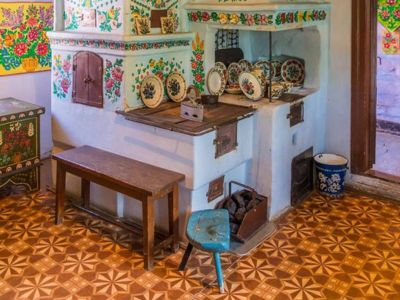
Traditional Polish floors regularly feature natural materials like timber, stone, and ceramic tiles, every imparting durability and a timeless enchantment. Wooden flooring, in particular pine, is an indicator of Polish interiors, reflecting Poland’s considerable natural resources and craftsmanship traditions. These floors are usually laid in complex patterns like herringbone and chevron, which add a hint of beauty to historical houses and spaces.
Another traditional function is using ceramic tiles, mainly in rural and mountain regions, where hand-painted tiles are not unusual. These tiles are recognized for their earthy hues and wonderful designs, frequently inspired by Polish folklore and nature.
2. Modern Flooring Trends

In contrast, cutting-edge flooring practices in Poland emphasize efficiency, versatility, and ease of renovation, aligning with international flooring tendencies. Materials such as laminate, vinyl, and porcelain at the moment are widely used, imparting durability while mimicking the appearance of natural wood or stone at a lower cost.
Polish homes additionally include underfloor heating systems, making modern substances like glazed tiles and luxury vinyl planks increasingly popular for their compatibility with this arrangement. Additionally, sustainability has become a key thing in flooring choices, with many choosing green materials like bamboo and recycled wood.
Famous Architects in Poland
1. Daniel Libeskind: An international-famous architect of Polish-American descent, Libeskind is thought for his progressive and emotive designs, inclusive of the Jewish Museum in Berlin.
2. Jacek Dudziak: A leading figure in the current Polish structure, Dudziak is recognized for his work in sustainable design and urban making plans.
3. Wojciech Zabłocki: Wojciech Zabłocki was a renowned Polish architect, celebrated for designing innovative structures and winning Olympic medals in fencing.
Different Names Used in Poland for Tiles
Porcelain Tiles – Płytki porcelanowe
Ceramic Tiles – Płytki ceramiczne
Vitrified Tiles – Płytki witrażowane
Stoneware Tiles – Płytki kamionkowe
Terracotta Tiles – Płytki terakotowe
Mosaic Tiles – Płytki mozaikowe
Glass Tiles – Płytki szklane
Cement Tiles – Płytki cementowe
Wood-look Tiles – Płytki imitujące drewno
Marble Tiles – Płytki marmurowe
Where Are the Majority of Tile Manufacturers in Poland Located?

1. Opoczno: Opoczno is an ancient ceramics hub in Poland, famous for its exceptional tile production courting again to the nineteenth century. Home to main producers like Ceramika Paradyż, Opoczno produces plenty of ornamental and purposeful tiles, blending conventional Polish designs with cutting-edge strategies to cater to both nearby and worldwide markets.
2. Końskie: Located in the Świętokrzyskie area, Końskie is honored for its ceramic and porcelain tile manufacturer. Known for various colorful designs, Końskie’s tile industry contributes substantially to Poland’s ceramics exports. The metropolis’s factories are renowned for generating high-quality, long-lasting tiles that appeal to attention from European and global markets.
3. Wrocław: As an outstanding business middle in Lower Silesia, Wrocław helps a growing tile manufacturing enterprise, leveraging neighborhood resources and skilled artisans. Manufacturers in Wrocław produce traditional and modern-day designs, making it a key region for ceramic and porcelain tiles that cater to Poland’s architecture and export needs.
4. Tomaszów Mazowiecki: Close to Łódź, Tomaszów Mazowiecki homes framed tile manufacturers like Cersanit, which exports to Europe and beyond. Known for producing incredible tiles in numerous patterns and finishes, the metropolis’s factories play a full-size position in Poland’s tile enterprise, combining Polish craftsmanship with progressive production techniques.
5. Katowice: Katowice, within the Silesian location, has a commercial base supporting a robust tile manufacturing sector. Manufacturers here are known for their present-day ceramic and porcelain tiles, assembling the needs of each Polish and international market.
Why Import Tiles From India?

Importing tiles from India gives numerous advantages, mainly for high quality, variety, and price effectiveness. India is thought to produce tiles in an extensive variety of designs, textures, and finishes that attract global markets. Manufacturers like Sunwin Ceramica stand out for their commitment to exceptional and innovation.
Sunwin Ceramica produces tiles with precise styles, colorful designs, and sturdy finishes, assembling global standards at the same time as providing competitive pricing.
Additionally, Indian manufacturer utilizes advanced technologies in their production approaches, ensuring consistency and precision. Sunwin combines traditional craftsmanship with cutting-edge layout, permitting clients to get a versatile choice for both residential & business projects.
5 Things Poland's People Must Know Before Buying Tiles
1. Tile Type & Purpose: Determine the format of the tile for the intended region. Porcelain tiles are highly long-lasting and moisture-resistant, best for kitchens and bathrooms, on the other hand, ceramic tiles go nicely in residing areas with light foot traffic.
2. Durability & Maintenance: Check the tile's sturdiness score (PEI score) to make certain it meets the room's necessities. Additionally, don't forget the maintenance requirement. Polished tiles require ordinary cleaning but matte or textured tiles can be forgiving in terms of maintenance.
3. Climate Compatibility: In Poland’s chillier climates, tiles that can withstand temperature adjustments are essential, specifically for outdoor use. Frost-resistant porcelain tiles are most suitable for exterior regions.
4. Aesthetic & Design: Choose shades, patterns, and textures that healthy the room’s decor and durability. Lighter tiles can make small rooms appear large, while patterned or darker tiles add warmth to larger areas.
5. Manufacturer & Warranty: Opt for respectable manufacturers offering satisfactory guarantees and warranties, like Polish brands from international locations like Italy or India, which offer great guarantees and help for sturdiness and longevity.
Does Weather Have Effects on Tiles in Poland?

Yes, tiles may be significantly impacted by Poland's weather, particularly its bloodless winters. If the tiles are not frost-resistant, the tension caused by freezing and thawing cycles outdoors is likely to cause fractures or separation. Because of their low water absorption, porcelain tiles are ideal in these kinds of situations since they stop water from leaking in and growing throughout the freezing period.
Extreme coldness in interior spaces may also make flooring uncomfortable to walk on, which is why underfloor heating tiles are a popular choice for maintaining a warm temperature. Seasonal variations in Poland's humidity can also affect tile grout, causing it to expand or settle. Long-lasting overall performance may be ensured by selecting tiles with resilient grout and materials that can withstand temperature changes.
What Is the Price of Tiles in Poland?
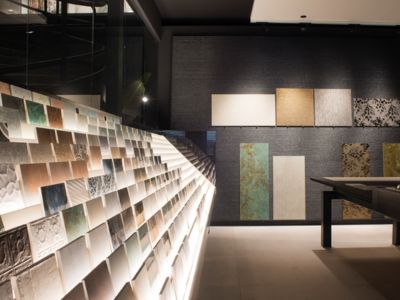
The price of tiles in Poland varies widely depending on the type, quality, design, and brand, allowing options for a range of budgets. Basic ceramic tiles typically cost around 20–50 PLN per square meter, making them a budget-friendly choice for standard applications in areas like kitchens and bathrooms. These ceramic tiles are durable, easy to clean, and available in numerous colors and patterns.
Porcelain tiles, which are more resilient and often preferred for high-traffic or outdoor areas, tend to be slightly more expensive, ranging from 60–150 PLN per square meter. Frost-resistant and non-slip porcelain tiles suitable for Poland’s colder climate and outdoor applications are priced higher within this range. Glazed porcelain options and polished finishes, which provide a more luxurious look, can be priced from 100–200 PLN per square meter, depending on the intricacy of the design.
For homeowners seeking premium or designer tiles, such as marble-look, real stone, or handcrafted designs, prices may start from 200 PLN per square meter and can go upwards to 500 PLN or more, depending on the brand and exclusivity. Imported tiles from Italy or Spain, known for their high-quality finish and unique designs, often fall in this upper range.
Reliable and Cost-Effective Tiles
Indian tiles in the price range of 65–150 PLN (1300–2900 INR) provide several affordable yet long-lasting options that are ideal for international markets like Poland. The less expensive tiles offer cost-effective options in a variety of colors and designs that are perfect for bathrooms and kitchens.
Because they are more resilient and suitable for both indoor and outdoor settings, porcelain tiles are perfect for Poland's environment because they are long-lasting and resistant to frost. While timber-look and stone-look tiles provide the beauty of genuine materials at a lower cost, vitrified tiles, which are known for their resilience and scratch resistance, are ideal for high-traffic areas.
Poland’s Leading Tile Manufacturer and Supplier
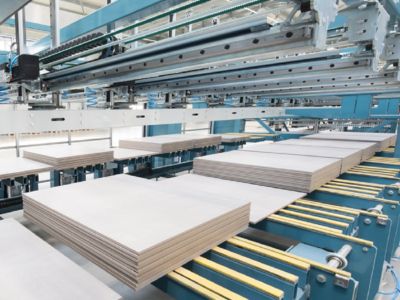
Even though Sunwin Ceramica is based in India, it has become one of Poland's top manufacturers and exporters of tiles. Sunwin is renowned for its large selection of premium ceramic and porcelain tiles, which accommodate a variety of tastes from classic patterns reminiscent of Poland's well-known tiles to modern, minimalist styles.
Sunwin's tiles are ideal for both commercial & residential settings because of their exceptional durability and ability to resist wear, moisture, and weather. Because of their dedication to accuracy and creativity, Sunwin Ceramica has become a reputable brand for consumers seeking high-quality, versatile tile solutions.
Ceramic Tiles In Poland
Tile Company: Sunwin Ceramica
Available Sizes: 300x300mm, 300x450mm, 400x400mm, 600x600mm, 300x600mm
Available Thickness: 6mm to 10mm
Available Colors: Multiple Colors
Porcelain Tiles In Poland
Tile Company: Sunwin Ceramica
Available Sizes: 600x600mm, 300x600mm, 450x900mm, 800x800mm, 1000x1000mm, 1200x1200mm
Available Thickness: 8mm to 12mm
Available Colors: Multiple Colors
Glazed Porcelain Tiles In Poland
Tile Company: Sunwin Ceramica
Available Sizes: 600x600mm, 300x600mm, 450x900mm, 800x800mm, 1000x1000mm, 1200x1200mm
Available Thickness: 8mm to 12mm
Available Colors: Multiple Colors
You May Also Like:
